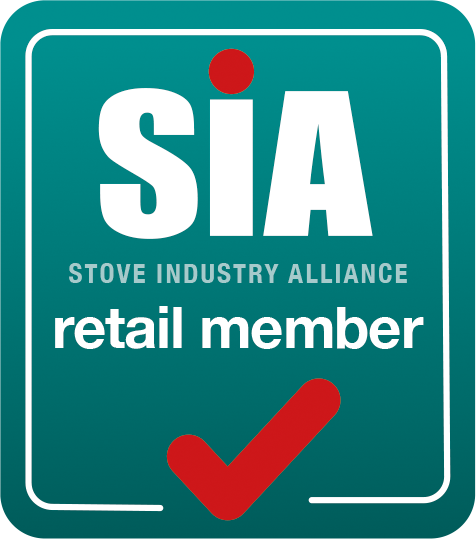Tips on buying logs for your stove
Sustainable management of woodlands for fuel is good for wildlife, biodiversity and the trees themselves. Even better, by carefully choosing the type of wood you burn in your wood burning stove or fire, you can get the best possible heating value for your home.

Buy seasoned wood
Between 35% and 60% of the weight of freshly felled wood comes from water, and trees felled in the spring/summer have a higher moisture content than those felled in the autumn/winter.
Seasoning, which is the storage of timber to ‘air dry’ it, reduces the moisture content of the wood. Stovax recommend that you purchase logs which have been seasoned for at least two years so that the moisture content is below 20%. You can tell if a log is dry because the bark will come away in your hand relatively easily and there will be splits across the grain.
Some suppliers are now offering kiln-dried logs which guarantee low moisture contents. Also please see HETAS Assurance Scheme below.
Choose hardwoods
Softwoods such as spruce and pine tend to be easy to light and cheaper but they burn quickly, meaning you have to reload the stove (and your log store) more frequently. Hardwoods tend to be denser and heavier than softwoods, hence providing a higher calorific value and a longer burn time. However, some of the very dense hardwoods such as oak and elm can sometimes be difficult to burn. If you can, try to obtain logs from ash, beech, hornbeam, hawthorn, crab apple or cherry….and the folklore sayings shown below echo the wisdom of centuries of wood burning!
Sizes
Ideally, logs should be no more than about 10cm in diameter. If any larger, the log will need to be split again to ensure it can burn properly.
The maximum log size for your Stovax wood burning stove or fire is given in the appliance’s User’s Instructions. If you ask, some suppliers will cut logs to this length for you to ensure they are easy to load.
HETAS Assurance Scheme
HETAS, the official body for solid fuel appliances, has introduced an assurance scheme for logs and other bio mass fuels. Suppliers signing up for the scheme will make sure any wood fuel provided to homeowners is the right product for their installation, as well as being both safe and efficient.




